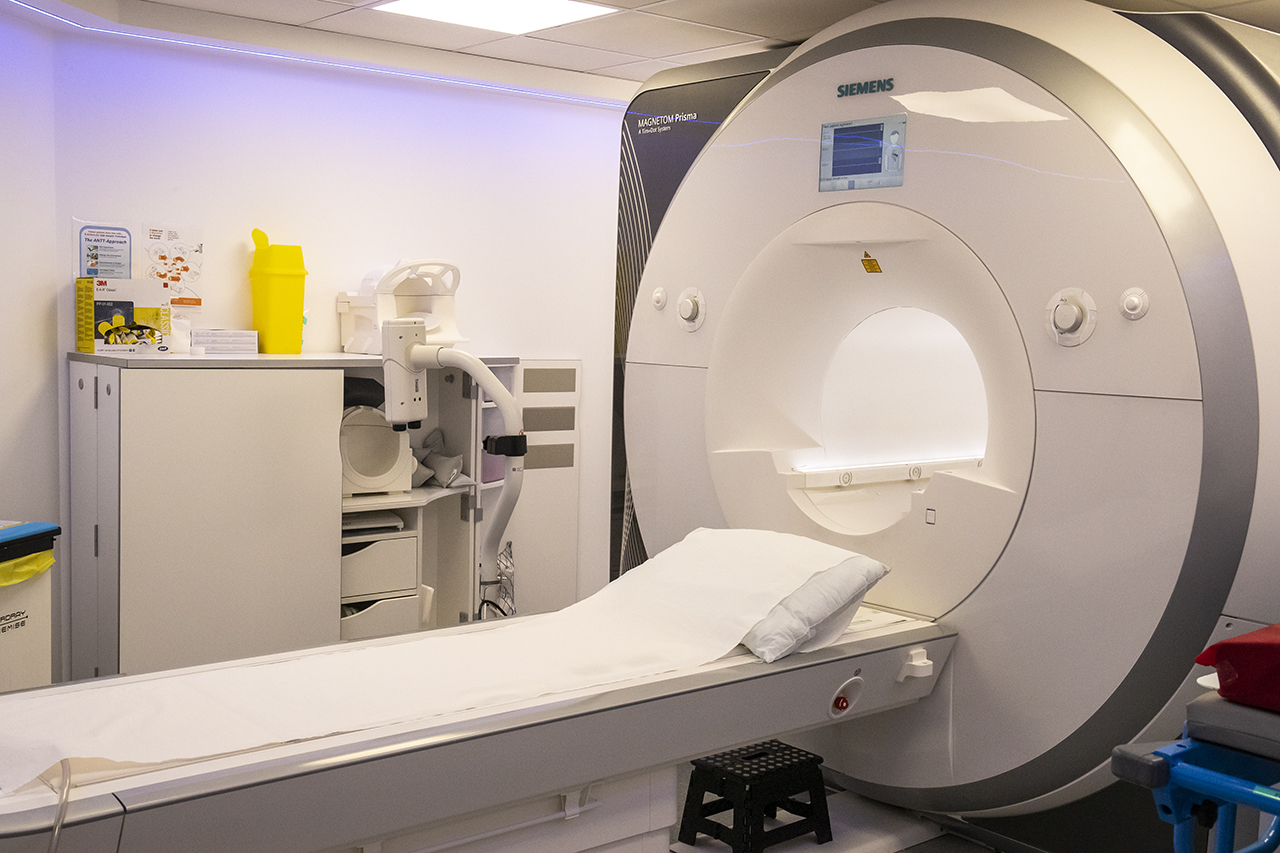Clinic

Deep Phenotyping Clinic
Deep phenotyping ( Imaging, remote assessment and wearables)
What?
Deep phenotyping and remote assessment using wearable devices and smartphones will be employed to identify subclinical damage or dysfunction in people experiencing long COVID.
Why?
We hypothesize that long COVID infection will be associated with evidence of multi-organ pathology.
How?
This investigation will involve 350 participants (long COVID and controls) who will be recruited from existing population cohorts. The following investigations will be carried out:
- Multi-organ imaging
- Imaging of the brain, lungs, heart, liver and kidneys using magnetic resonance imaging (MRI)
Functional testing in clinic
- Anthropometry
- Lung function using spirometry
- Resting heart rate variability and electrocardiogram (ECG), lying, seated, standing brachial and central blood pressure (BP)
- Cardiopulmonary exercise testing, including assessment of peak VO2, 12 lead ECG, blood pressure, muscle perfusion using near infrared spectroscopy, echocardiographic cardiac output and pre- postexercise lactate
- Retinal Optical Coherence Tomography angiography
- Strength and physical performance
- Blood and urine samples for storage
Remote assessment and wearables
- MassSci App for remote assessment of physical and mental health fortnightly or monthly, depending on the parameter measured.
- Cognitron (https://www.cognitron.co.uk/) for cognitive function, completed weekly for a month, and subsequently repeated 6 monthly.
- Garmin vivoactive 4 wrist worn device to capture habitual activity, heart rate variability, sleep patterns, oxygen saturation (SpO2) and respiratory rate. In addition, participants will perform a standardised 6-minute walk test and a chair sit-stand test fortnightly for the first 6 months, then quarterly. All remote assessments will continue for up to 18 months.
Research Lead: Professor Alun Hughes (UCL)
